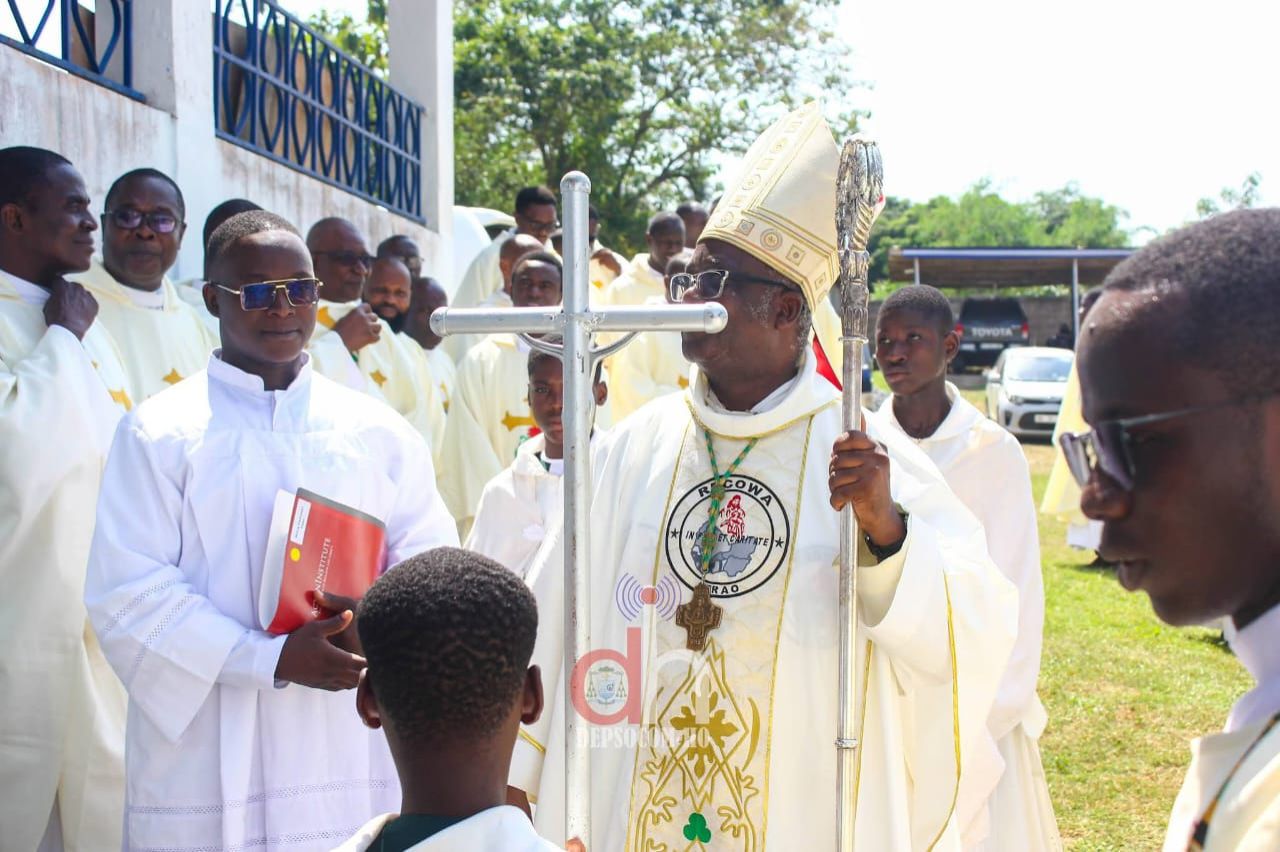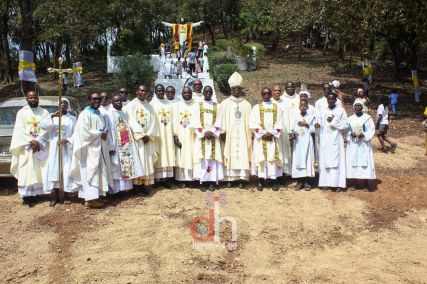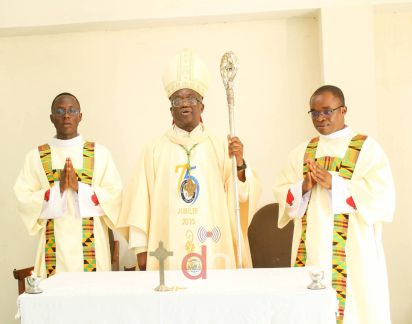Catholic Diocese Of Ho Climaxed Jubilee Year with Pilgrimage of Thanksgiving as people of Hope
The Ho Diocese formally culminated its Jubilee Year on Saturday, January 3, 2026, with a pilgrimage of thanksgiving attended by priests, religious, and consecrated men and women and catholic faithful of the Diocese. Gathering at Our Lady of Lourdes Grotto, Kpando Agbenoxoe, the faithful were led by Most Rev. Emmanuel Kofi Fianu, SVD.
The event began with an exposition on the Jubilee theme, "Pilgrims of Hope," delivered by Rev. Fr. Anthony Dotsey, Chairman of the Diocesan Jubilee Planning Committee. Before the closing mass, the Penitential rite was led by Rev. Fr. Francis Kofi Akoto in prepartion towards the Eucharistic Celebration presided over by Bishop Fianu.
In his homily, Bishop Fianu called on the diocese to give thanks to God for a successful journey through the Jubilee Year. "We give thanks to God for indeed hope has not disappointed us," he stated, emphasizing that while the Jubilee Year concludes, "our hope in Christ does not end."
He urged the faithful to remain energized and to continue making use of the spiritual exercises nurtured during the year. The Bishop issued a challenge for ongoing witness, saying, "We must show forth in our daily lives because we bear his name as Christians… Manifest what we are; we become witnesses to Christ everywhere."
The closing ceremony served not as an end, but as a commissioning, sending the pilgrims of hope back to their communities to live out the grace of the Jubilee in the years ahead.




